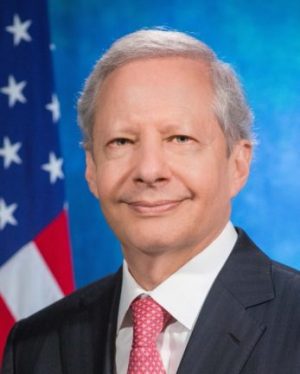The outgoing U.S. ambassador to India, Kenneth Juster, has confirmed that his country has been involved in the ongoing China-India standoff in Ladakh. Speaking at a virtual New Delhi think tank event on January 5, Juster noted: “Simply put, no other country does as much to contribute to the security of Indians and India.” “Our close coordination has been important as India confronts, perhaps on a sustained basis, aggressive Chinese activity on its border,” he added.
When asked to expand on this remark, the ambassador declined to provide details of what that “close coordination” has concretely entailed, passing the onus of such disclosure to the Indian government. “I appreciate the question and the interest in the internal discussions on China, but it’s not really something I’m at liberty to get into here. If the government of India wants to comment on that, that’s for the government of India. Suffice it to say that we have cooperated,” The Hindu quoted Juster as saying.
While the fact that the United States has provided intelligence support to India during the Ladakh standoff is something of an open secret in New Delhi’s strategic circles, Juster’s public remarks provide the first on-record confirmation of the fact. While previous news reports noted U.S. intelligence support during the China-India standoff in Doklam in 2017, they were based on anonymous sources.
Reacting to Juster’s comments, the Chinese ambassador to India, Sun Weidong, tweeted on January 6: “We have noticed recent remarks with reference to #China by the #US side. We firmly oppose any third party meddling in #China-#India border issue and hope the #US relations with others not target any specific country.”
As I have previously noted in these pages, India and the United States have maintained close contact during the Ladakh crisis, with President Donald Trump mentioning his country’s potential role (in one instance, rather incredulously) in it on a couple of occasions. However, Secretary of State Mike Pompeo has, in the past, stated that he and his Indian counterpart, External Affairs Minister S. Jaishankar, have spoken about the crisis “a number of times.” Then Secretary of Defense Mark Esper and Indian Defense Minister Rajnath Singh also discussed the standoff, Indian media previously reported, quoting anonymous Indian government sources.
The Trump administration has tried to portray Chinese incursions across a large frontage in Ladakh, which began in April last year, as part of China’s overall territorial revisionist designs across the Indo-Pacific.
In his speech, Juster dwelt at length on the India-U.S. security cooperation, which has dramatically accelerated over the course of the last four years with Trump in the White House. However, trade and economic ties between the two countries continue to be rocky, especially given Trump’s mercantilist trade policy. While Juster flagged some of these issues, he seemed to be critical of Prime Minister Narendra Modi’s new “AtmaNirbhar Bharat” (self-reliant India) and export-driven “Make in India” plans.
“It remains to be seen whether all of these policies are compatible and mutually reinforcing, or whether they will lead to higher tariff and non-tariff barriers to trade. The latter would limit India’s capacity to truly integrate into global value chains and, in the process, raise prices for Indian consumers,” the ambassador noted.
“Our experience is that excessively managed markets tend to create inefficiencies, leading to slower growth. On the other hand, trade openness historically has produced positive results for the Indian economy, its job market, and its consumers,” Juster said.

































